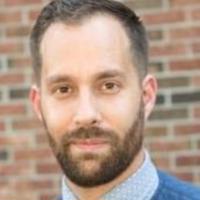Progressive Vocal Development in the Voice Studio: An Evidence-Based Framework
Thursday 24th August 2023, 5:00 PM - 7:00 PM (London Time)
Increasingly, singing voice teachers are encouraged to base voice instruction on the intersection of “teacher expertise and experience, student goals and perspectives, and relevant research” (Ragan, 2018) into their professional practice vis à vis Evidence-Based Voice Pedagogy. As we as a field move toward this framework, it can be difficult to balance the pedagogical need to adapt to an ever-expanding foundation of knowledge while providing our clients/students with the practical application of pedagogical concepts. The modern-day voice teacher is left questioning how to turn theory into practice.
This short course will present a framework for intentionally planning for a client’s vocal and musical development with foundational concepts found within Evidence-Based Voice Pedagogy such as singing voice acoustics, motor learning theory, and flow psychology. Through collaborative and interactive case studies, attendees will learn how to develop vocal exercises and how to select repertoire to motivate and encourage functional change.
Attendees of this short course will…
- Understand a framework for applying concepts from Evidence-Based Voice Pedagogy in the voice studio.
- Develop an understanding of how to adjust their pedagogical goals and expectations for singers throughout the lifespan and who sing different musical styles/genres.
- Create an evidence-based developmental plan based on case study audio/visual examples.
- Create progressively complex vocal exercises based on case study audio/visual examples.
- Apply evidence-based principles when selecting repertoire for developmental purposes.
- Evaluate the difficulty level of vocal repertoire using an evidence-based framework.
Joshua Glasner
Baritone, Joshua Glasner, M.M., Ph.D. is Assistant Professor of Music at Clarke University where he teaches voice lessons (CCM, Musical Theatre, and...

Attend this course for as little as £22 as part of the Voice Professional Training CPD Award Scheme.
Learn MoreSorry, this is an archived short course...
We have plenty of upcoming short courses coming soon. See details of some of them below or look at the full list of short courses.


Tuesday 3rd March 2026
5:00 PM - 7:00 PM
(London Time)
Sex differences in VOICE!

Dr Richard Lissemore
This two-hour workshop, led by performer, articulatory phoneticist, and voice physiologist, Dr. Richard Lissemore, will examine in detail the role that biological sex plays in the perception and pedagogy of singing voices. We'll consider how parameters such as anatomy, physiology, articulation, resonance, and radiated acoustics influence the perceptions and pedagogical decision-making of singing teachers.

Wednesday 4th March 2026
1:00 PM - 2:00 PM
Wednesday 11th March 2026
1:00 PM - 2:00 PM
Wednesday 18th March 2026
1:00 PM - 2:00 PM
Wednesday 25th March 2026
1:00 PM - 2:00 PM
Wednesday 1st April 2026
1:00 PM - 2:00 PM
Wednesday 8th April 2026
1:00 PM - 2:00 PM
(London Time)
Learn to Coach RP and SSBE – a Certificate in Accent Coaching

Louisa Morgan
This six-week course is an opportunity to learn about both Received Pronunciation and Standard Southern British English. Rather than a course in learning how to speak RP/SSBE (there are many brilliant available courses for this already), this course is about learning how to coach it.

Thursday 5th March 2026
1:00 PM - 2:30 PM
Thursday 12th March 2026
1:00 PM - 2:30 PM
(London Time)
Acting Emotion: Perspectives from the Masters

Louisa Morgan
Stanislavski said, “our artistic emotions are, at first, as shy as wild animals and they hide in the depths of our souls.” Michael Chekhov said, our bodies should be like a “sensitive membrane, a kind of receiver and conveyor of the subtlest images, feelings, emotions and will impulses.” And Meisner said we should be “living truthfully under imaginary circumstances.” Join Louisa Morgan in this 2-part course as she explores a range of well-known acting practitioners to investigate what they believed (or believe) about emotion and how they approached it in their work. She'll compare their work to see where they align and where they diverge.
